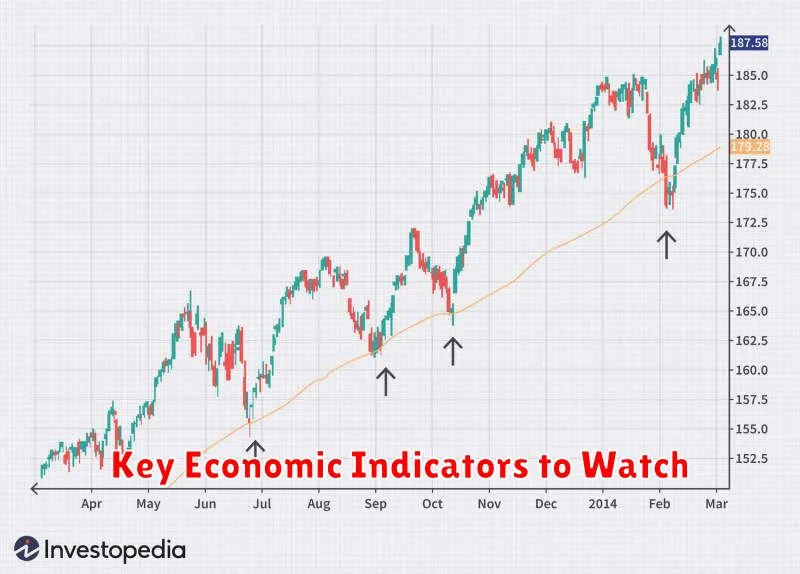Stay ahead of the market with our live stock market updates, providing you with the latest breaking news and in-depth analysis. Get real-time insights on market trends, major company announcements, and key economic indicators that could impact your portfolio. Whether you’re a seasoned investor or just starting out, our comprehensive coverage keeps you informed and empowered to make smart decisions.
Our team of experienced financial analysts meticulously monitors the market, providing you with expert insights and timely commentary. From stock price movements to earnings reports and industry trends, we deliver the information you need to navigate the dynamic world of investing. Subscribe to our feed for a continuous flow of breaking news and analysis, ensuring you never miss a critical moment in the market.
Real-Time Market Data and Indices
Staying ahead in the dynamic world of stock markets demands access to real-time data and indices. This crucial information paints a vivid picture of current market conditions, allowing investors to make informed decisions.
Real-time market data encompasses a wide range of information, including:
- Stock prices: Live updates on the current value of individual stocks.
- Trading volume: The number of shares being bought and sold, indicating market activity.
- News feeds: Breaking news and announcements impacting specific companies or the broader market.
- Analyst ratings: Recommendations from financial analysts on stock performance and potential.
Indices provide a comprehensive snapshot of the overall market performance. Key indices include:
- S&P 500: A benchmark index tracking the performance of 500 large-cap U.S. companies.
- Nasdaq Composite: An index representing the performance of companies listed on the Nasdaq stock exchange.
- Dow Jones Industrial Average (DJIA): An index tracking the performance of 30 large, publicly owned companies in the U.S.
Real-time market data and indices are indispensable tools for investors, empowering them to:
- Monitor market trends: Identify emerging patterns and potential shifts in market sentiment.
- Track portfolio performance: Gauge the performance of individual investments against market benchmarks.
- Make informed trading decisions: Act swiftly based on real-time information and changing market conditions.
Latest News Affecting Stock Prices

The stock market is constantly in flux, and it can be challenging to keep up with the latest news that could impact your investments. To help you stay informed, we’ve compiled a list of recent headlines that could be affecting stock prices:
Inflation Data
Recent inflation data released by the Bureau of Labor Statistics showed a slight decline in the Consumer Price Index (CPI). This news was generally viewed positively by investors, as it suggests that inflation may be starting to cool down. However, it’s important to note that the Federal Reserve will continue to monitor inflation closely and may still raise interest rates in the coming months.
Earnings Season
Earnings season is in full swing, with several major companies reporting their quarterly results. These earnings reports can provide valuable insights into the health of the economy and individual companies. Investors will be closely watching for signs of growth, profitability, and future guidance from these companies.
Geopolitical Tensions
Geopolitical tensions remain a major source of uncertainty in the markets. The ongoing conflict in Ukraine, coupled with heightened tensions between the US and China, could continue to weigh on investor sentiment.
It’s important to remember that the stock market is constantly evolving, and the news can change rapidly. We recommend staying informed about the latest headlines and consulting with a financial advisor before making any investment decisions.
Expert Insights and Analysis on Market Trends
Stay ahead of the curve with our expert insights and analysis on the latest market trends. Our team of seasoned professionals provides real-time commentary and in-depth analysis to help you navigate the dynamic world of finance. From macroeconomic factors to industry-specific developments, we break down the key drivers influencing market movements.
Key Areas of Focus:
- Global Economic Outlook: We analyze global economic indicators, monetary policies, and geopolitical events that shape market sentiment.
- Sector Performance: We delve into the performance of various sectors, identifying opportunities and potential risks within specific industries.
- Company Fundamentals: We assess the financial health and competitive landscape of publicly traded companies, providing insights into their growth prospects.
- Technical Analysis: We employ technical indicators and chart patterns to identify potential trends and trading opportunities.
Our aim is to provide you with actionable insights that empower you to make informed investment decisions. Our team of experts brings a wealth of knowledge and experience to the table, ensuring that you receive the most relevant and timely information available.
Company Earnings Reports and Their Impact

Company earnings reports are a crucial factor in influencing stock market movements. These reports provide investors with insights into a company’s financial health and performance, which can significantly impact investor sentiment and trading decisions. When a company releases its earnings report, investors closely scrutinize its key metrics, including revenue, earnings per share (EPS), and profit margins.
Positive earnings surprises, where a company exceeds analysts’ expectations, often lead to a surge in stock prices. Investors perceive such companies as strong performers and are more likely to buy their shares, driving up demand and pushing prices higher. Conversely, negative earnings surprises, where a company falls short of expectations, can result in a decline in stock prices. Investors may lose confidence in the company’s future prospects and sell their shares, leading to a downward price movement.
However, it’s essential to note that earnings reports are not the only factor influencing stock prices. Other factors, such as macroeconomic conditions, industry trends, and competitive landscape, also play a significant role. Additionally, market sentiment and investor expectations can influence how the market reacts to earnings reports. A company may report strong earnings but still experience a stock price decline if the market is already pessimistic about its industry or the overall economy.
Understanding the impact of company earnings reports is crucial for investors seeking to make informed decisions. By carefully analyzing earnings reports and considering other relevant factors, investors can navigate the stock market effectively and potentially capitalize on opportunities presented by these events.
Global Economic Events Shaping the Market
The stock market is a dynamic entity, constantly reacting to a myriad of global economic events. Understanding these events is crucial for investors seeking to navigate the market’s fluctuations effectively. Here’s a breakdown of some key factors influencing the market:
Inflation and Interest Rates: Central banks around the world are battling inflation by raising interest rates. This impacts corporate borrowing costs, potentially slowing economic growth and impacting stock prices.
Geopolitical Tensions: The ongoing conflict in Ukraine, heightened tensions with China, and other geopolitical events create uncertainty and volatility in the market. These events can disrupt supply chains, increase commodity prices, and influence investor sentiment.
Economic Growth: Global economic growth forecasts are being revised downwards due to factors like inflation, rising interest rates, and supply chain disruptions. This can impact corporate earnings and investor confidence, influencing stock valuations.
Currency Fluctuations: Changes in currency exchange rates can impact multinational companies’ earnings and influence global trade. A weakening US dollar can make US exports more competitive, while a strengthening dollar can benefit importers.
Energy Prices: The global energy market is undergoing a period of significant volatility, with factors like the war in Ukraine and the transition to renewable energy sources influencing prices. This directly impacts energy-intensive industries and has broader economic implications.
Staying informed about these global economic events is critical for making sound investment decisions. By understanding the factors shaping the market, investors can better navigate volatility and position themselves for potential opportunities.
Understanding Market Sentiment and Investor Confidence
In the dynamic world of stock markets, understanding market sentiment and investor confidence is crucial for navigating the complexities of trading and making informed investment decisions. Market sentiment refers to the overall mood and attitude of investors towards the market. It’s a collective feeling that influences buying and selling decisions.
Investor confidence, on the other hand, reflects the level of trust and optimism investors have in the economy and financial markets. It plays a significant role in driving investment flows and influencing stock prices.
Several factors contribute to market sentiment and investor confidence, including economic data, corporate earnings, political events, and news headlines. Positive economic indicators, strong corporate earnings, and favorable political developments tend to boost investor confidence, leading to a bullish market sentiment. Conversely, negative news, weak economic data, or geopolitical tensions can dampen confidence, creating a bearish market sentiment.
To gauge market sentiment and investor confidence, analysts often look at various indicators, such as:
- Investor surveys: Surveys conducted by research firms and financial institutions provide insights into the sentiment of retail and institutional investors.
- Trading volume: High trading volume suggests heightened investor interest and activity, while low volume may indicate a lack of conviction.
- Market volatility: Elevated market volatility can reflect uncertainty and heightened anxiety among investors.
- Put-call ratio: This ratio compares the volume of put options (bets on a decline in stock prices) to call options (bets on an increase in stock prices). A high put-call ratio may signal negative sentiment.
Understanding market sentiment and investor confidence helps investors make more informed trading decisions. By staying abreast of these factors and analyzing relevant indicators, investors can gain a better grasp of market trends and identify potential opportunities or risks.
Key Economic Indicators to Watch

Navigating the stock market requires staying informed about key economic indicators that influence market sentiment and investment strategies. These indicators offer valuable insights into the health of the economy and potential shifts in market direction.
Gross Domestic Product (GDP): GDP represents the total value of goods and services produced within a country. A strong GDP growth rate indicates a healthy economy and potential for corporate earnings growth.
Inflation: The rate at which prices rise over time is measured by inflation. High inflation can erode purchasing power and impact corporate profitability.
Unemployment Rate: A low unemployment rate suggests a strong labor market and consumer confidence, which can support economic growth and stock market performance.
Interest Rates: Interest rates set by central banks influence borrowing costs for businesses and consumers. Rising interest rates can slow economic growth and impact corporate profitability.
Consumer Confidence: Consumer sentiment reflects consumer spending patterns and their outlook for the economy. High consumer confidence can drive economic growth and stock market performance.
Manufacturing and Industrial Production: These indicators measure the output of the manufacturing and industrial sectors, providing insights into economic activity and potential for future growth.
Housing Market Data: Housing starts, sales, and inventory levels provide insights into the health of the housing sector, which is a major component of the economy.
Retail Sales: Retail sales figures reveal consumer spending patterns, a key driver of economic growth.
Monitoring these key economic indicators can help investors understand the overall health of the economy, anticipate potential market trends, and make informed investment decisions.
Sector-Specific News and Performance
The technology sector is experiencing a surge in trading activity today, driven by positive earnings reports from several key players. Apple, in particular, saw its stock price climb after announcing record quarterly revenue, boosted by strong iPhone sales. Microsoft also reported solid earnings, exceeding analysts’ expectations. These positive developments have fueled optimism in the tech sector, leading to broad-based gains.
In contrast, the energy sector is facing headwinds as crude oil prices continue to decline. ExxonMobil and Chevron both saw their stock prices dip following the recent drop in oil prices, which has been attributed to concerns over global economic growth and potential supply increases. This downward pressure on the energy sector is likely to continue in the near term.
The healthcare sector remains relatively stable, with mixed performance among individual stocks. Pfizer saw its stock price rise after announcing positive results from a clinical trial for a new Alzheimer’s drug. However, Johnson & Johnson faced pressure after reporting lower-than-expected quarterly earnings. This mixed performance reflects the overall uncertainty in the healthcare sector, which is heavily influenced by regulatory changes and new drug approvals.
Government Policies and Regulations Impacting the Market
Government policies and regulations play a crucial role in shaping the stock market landscape. These measures can significantly impact investor sentiment, market volatility, and overall economic growth.
Monetary policy, implemented by central banks, influences interest rates and the availability of credit. Lower interest rates can stimulate borrowing and investment, leading to higher stock prices. Conversely, tightening monetary policy can slow down economic activity, potentially putting downward pressure on equities.
Fiscal policy, involving government spending and taxation, can also impact the market. Increased government spending can boost economic growth and corporate profits, while tax cuts can increase disposable income and consumer spending. Conversely, tax increases or spending cuts can negatively affect economic activity.
Regulatory changes, such as those affecting environmental protection, financial institutions, or industry-specific regulations, can impact individual sectors and companies. These changes can create uncertainty and volatility in the market, as investors assess the potential impact on specific businesses.
Trade policies, including tariffs and trade agreements, can influence global trade flows and the competitiveness of domestic companies. Trade disputes can create uncertainty and negatively impact certain sectors, while trade agreements can promote economic growth and boost exports.
Staying informed about government policies and regulations is essential for investors. Understanding the potential impact of these measures on different sectors and companies can help investors make informed investment decisions.

